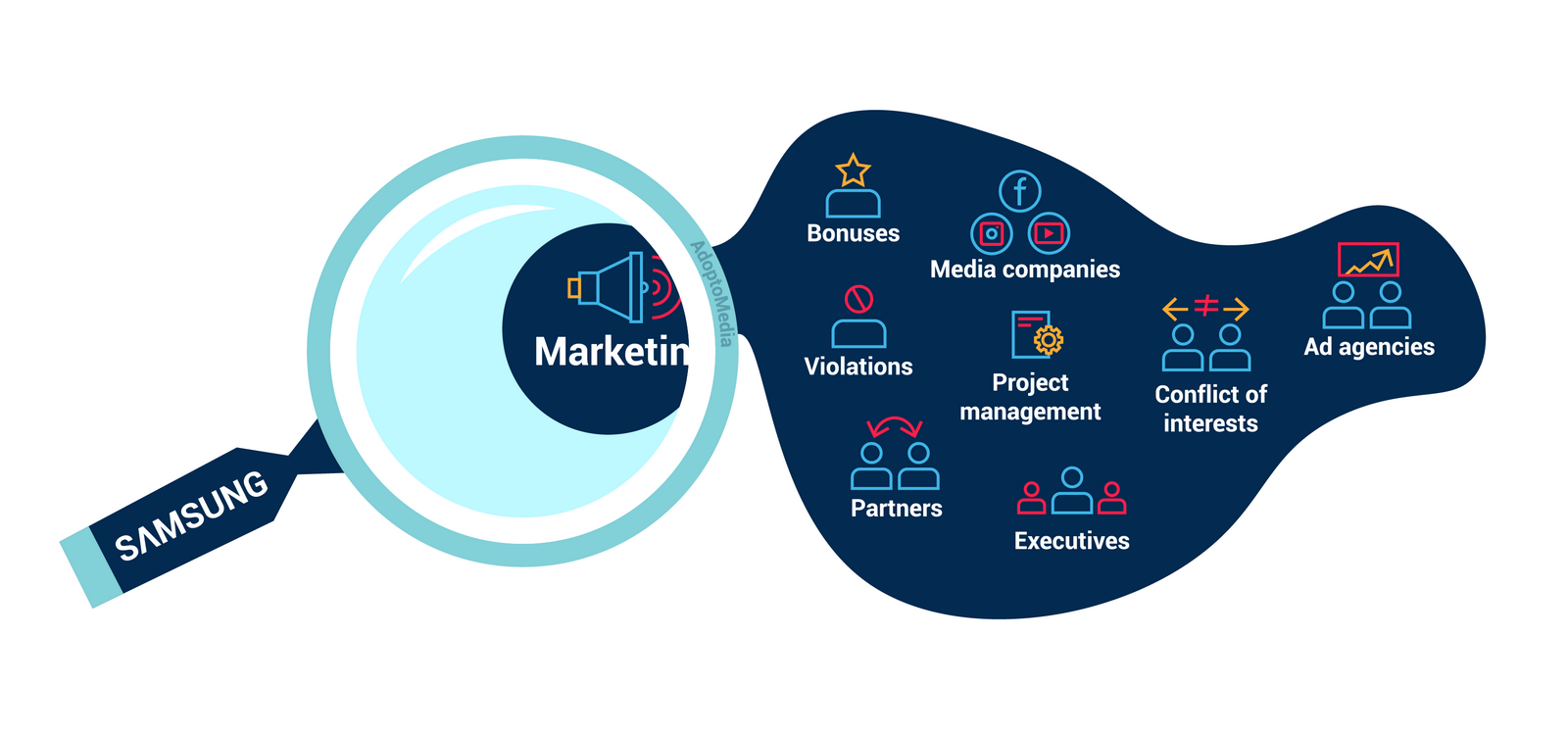 In Spring 2019, Samsung Electronics Co., a South Korean tech giant, audited its American marketing department for any violation of internal policies concerning dealings with business partners. Following this audit, the company laid off a number of employees.
In Spring 2019, Samsung Electronics Co., a South Korean tech giant, audited its American marketing department for any violation of internal policies concerning dealings with business partners. Following this audit, the company laid off a number of employees.
While routine audits is a common practice, they have been on the rise recently due to extremely topical transparency issues. As you might remember, in 2016 the Association of National Advertisers (ANA) revealed a study by K2 Intelligence on behind-the-scene rebates and media buying processes in the US, that dropped like a bomb in the marketing industry community setting in motion the FBI investigation and dramatic changes. According to ANA’s “Trust Report” the trust between clients and agencies has declined by 28% over the last three years. To address this problem, some major advertisers established in-house marketing teams that would act in the best of their interests. This is exactly what Procter & Gamble did, managing to save $750 mln on advertising in 2018. ANA also founded a Trust Consortium aimed at setting new standards for the industry and helping achieve the necessary level of transparency in the digital media supply chain.
Among spheres that were audited as a part of this internal probe are dealings between marketing department employees and business partners like advertising agencies and media companies. Even though it’s not unusual when marketers accompany partners to events they are sponsoring or accept other bonuses, dealings like these could create a conflict of interest and raise question of whether marketers allocate budget to the most effective advertising channels.
Samsung also carried out thorough audits of its ad-agency partners, that include Interpublic Group’s PMK-BNC and R/GA, Publicis Groupe’s SA media agency and independent agency Edelman.
Prior to the audit, some of the company’s US department executives including CMO Marc Mathieu and vice president of media and partnerships Jay Altschuler were let go, still Samsung refused to comment whether the two moves are linked. They also appointed Stephanie Choi as the new head of global marketing.
Another reason that might have encouraged Samsung to audit it’s marketing department in the US is a significant decline in smartphone sales.
The marketing industry is changing and improving by addressing the challenges it faces, and one of the major issues is transparency of media-buying operations. Some solutions have already emerged to tackle this problem. For example, AdoptoMedia offers a flexible platform, that can be seamlessly integrated into a company’s existing IT infrastructure. This tool helps achieve the necessary level of transparency in cross department operations, manage contracts, provide visibility for C-level executives, set common KPIs, and facilitate the digital transformation of the business. It is an advanced tool for strategic and tactical assistance in marketing, that increases ROMI by at least 10-20%; it can be used to create a perfect Media Mix and calculate ROMI in real time.


